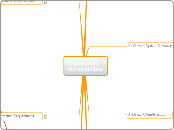Requirements
Documentation
1. Introduction
Purpose
Scope
Project References
Applicability
Intended Audience and Reading Suggestions
Approvals
Request Manager
Request Stakeholder
Jason Goldman
Date
Comments
Signature
___________________
Software Analyst
Project Manager
Technical Lead
Developer
Points of Contact
Operations Contact
Dr. Larry Dunlop
Client Services Contact
2. Current System Summary
Background
Patents
All Files
and Folders
Patent History.xlsx
Patent_List.docx
Trademarks.docx
Research
Studies
Current Functionality
Objectives
Current Methods and Procedures
Equipment Being Used
Input and Output
Provisions in the Existing System Design
Deficiencies
3. Design Considerations
System Description
System Functions
User Requirements
Data Flow Diagrams
Logical Data Model/Data Dictionary
Flexibility
4. Proposed Methods and Procedures
Summary of Improvements
Functional Improvements
Improvements to Existing Capabilities
Timeliness
Summary of Impacts
User Organizational Impacts
User Operational Impacts
User Developmental Impacts
Assumptions and Constraints
Hardware limitations (timing requirements, memory requirements)
Interfaces to other applications
Specific technologies
Tools
Databases to be used
Parallel operations
Language requirements
Communications protocols
Security considerations
Design conventions or programming standards
Prototypes
Prototypes principally help with design decisions and user interface design
6. Detailed Characteristics
Functional Area System Functions
All Files
and Folders
Function Rules.docx
Functional Guidelines.xlsx
Batches
Inputs
Subtopic
Subtopic
Subtopic
Subtopic
Outputs
Subtopic
Subtopic
Subtopic
Subtopic
Failure Contingencies
Backup
Fallback
Degraded Modes of Operation
5. Performance Requirements
Options Maintenance
Account Default
Template Behavior
Software Interface
Documentation
Other Requirements
Security Requirements
Security & Privacy Requirements
Loss or corruption of data
Disclosure of secrets or sensitive information
Disclosure of privileged/privacy information about individuals
Corruption of software or introduction of malware, such as viruses
Database requirements
Internationalization requirements
Legal requirements
Reuse objectives
Glossary
Glossary
